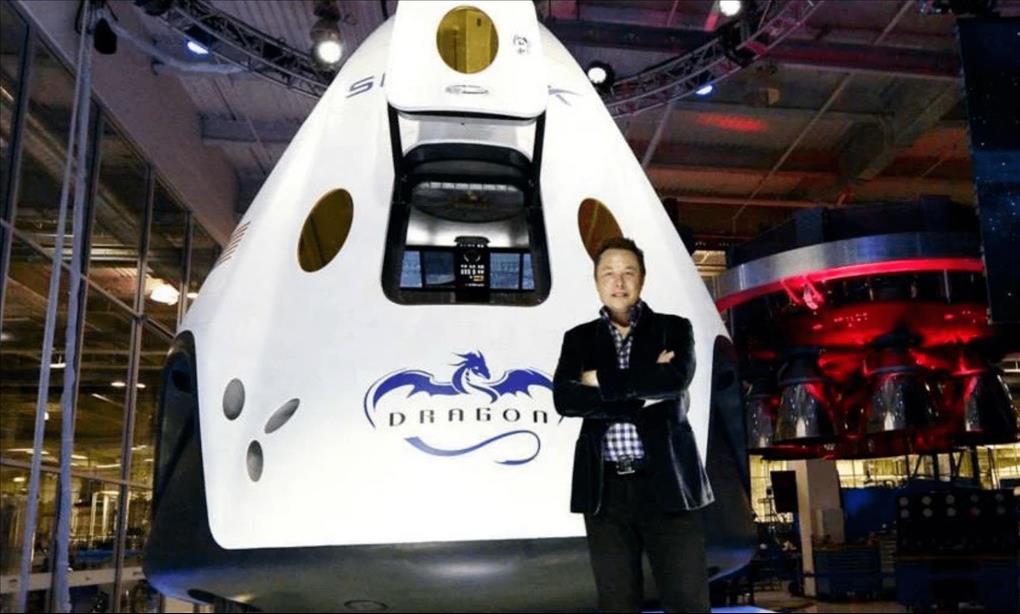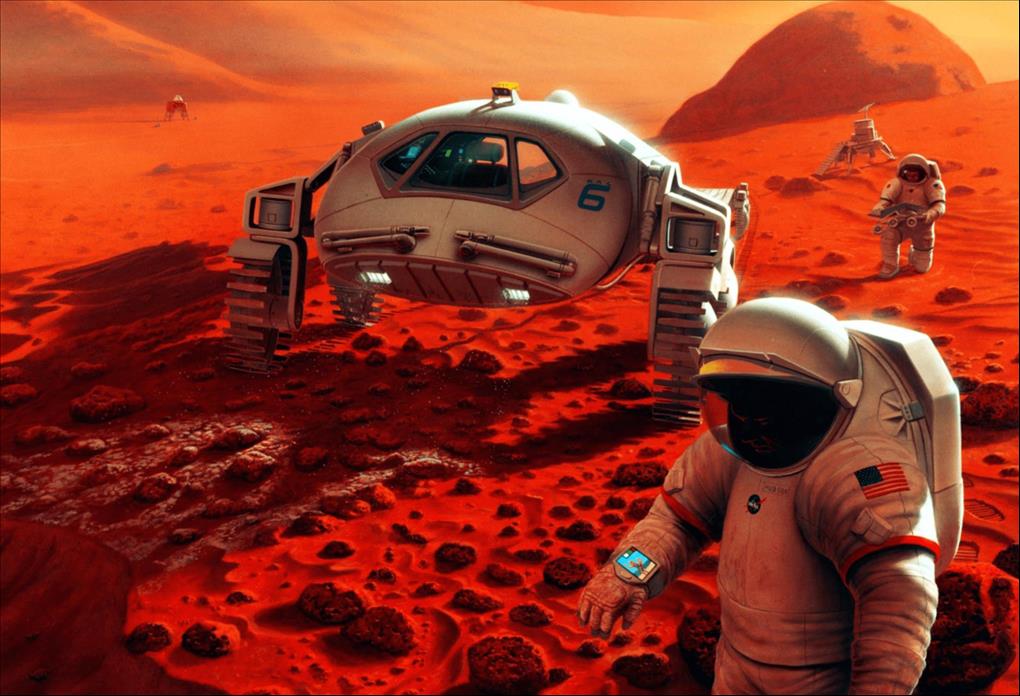(MENAFN- Asia Times) The year is 2055 … and your ticket is paid!
You and your wife board a spaceship somewhere in the desert of the American southwest, eager to launch into space.
After making your connection at a Space Station, circling the earth, a nuclear-powered shuttle with anti-gravity technology will whisk you to Mars — where, you have two weeks booked at a domed condo at Elon Musk's Mars City.
Mars planetary space walks, water skiing on the indoor lake, geologic tours, fine dining and a casino are all included in the price.
Yes, all this and more, could happen, if billionaire entrepreneur Elon Musk's prediction, that the next logical step for humanity's development is a permanent base on the Moon and a city on Mars.
The SpaceX CEO made the comments , during a Kremlin-sponsored event that could result in a Tesla factory in the country, reported.
According to the report, Musk said that the space industry should ''consider the next step beyond space stations.''
Meanwhile, earlier this month, SpaceX successfully launched and landed a Starship rocket for the first time without it exploding, a major milestone in humanity's progress towards the Red Planet.
In the flight test, the prototype rocket launched more than six miles into the sky before reorienting and landing back on Earth vertically.

Billionaire entrepreneur Elon Musk with his highly successful Dragon space capsule, which is already in use with NASA space flights to the ISS. Credit: SpaceX.
The past four prototypes have been blown to smithereens upon landing, making this latest result a huge milestone.
SpaceX had also secured a US$3 billion contract with NASA to further develop Starship in order to return humans to the Moon by 2024.
A potential Mars landing could be achieved as early as 2024 or 2026, Musk predicts, in the hopes of eventually creating a self-sustaining colony on the Red Planet by 2050.
The billionaire believes that terraforming — blasting the planet with nuclear weapons at its poles to cause the ice caps to melt and induce accelerated warming — will be a key component to live on other planets.
''Life in glass domes at first. Eventually, terraformed to support life, like Earth,'' he said.
''Terraforming will be too slow to be relevant in our lifetime. However, we can establish a human base there in our lifetime. At least a future spacefaring civilization — discovering our ruins — will be impressed humans got that far.''
Is terraforming possible?
According to NASA, proponents of terraforming Mars propose releasing gases from a variety of sources on the Red Planet to thicken the atmosphere and increase the temperature to the point where liquid water is stable on the surface.
These gases are called ''greenhouse gases'' for their ability to trap heat and warm the climate.
Researchers have analyzed the abundance of carbon-bearing minerals and the occurrence of CO2 in polar ice using data from NASA's Mars Reconnaissance Orbiter and Mars Odyssey spacecraft, and used data on the loss of the Martian atmosphere to space by NASA's MAVEN (Mars Atmosphere and Volatile Evolution) spacecraft.
''Our results suggest that there is not enough CO2 remaining on Mars to provide significant greenhouse warming were the gas to be put into the atmosphere; in addition, most of the CO2 gas is not accessible and could not be readily mobilized. As a result, terraforming Mars is not possible using present-day technology,'' said Bruce Jakosky of the University of Colorado, Boulder.
All things considered, terraforming Mars cannot be done with currently available technology. Any such efforts have to be very far into the future.
Last year, Musk caused a stir when he said something provocative, but ultimately correct: there's a ''good chance'' the first Mars settlers will die.
The SpaceX mastermind also dispelled the notion that the initial Mars journey will be 'some escape hatch for rich people.''
Musk elaborated:
You probably won''t have good food. If an arduous and dangerous journey where you may not come back alive — but it's a glorious adventure — sounds appealing, Mars is the place. That's the ad. That's the ad for Mars.
Honestly, a bunch of people probably will die in the beginning. It's tough sledding over there. We''re not going to make anyone go. It's volunteers only.''
— Popular Mechanics
The key to surviving the desperate conditions that await the first Martian settlers isn''t having money — it's balancing their response to predictable events (limited water, no atmosphere, radiation) and developing a resiliency against unpredictable events, Jennifer Buz, Ph.D., an areologist at Northern Arizona University, said.

Elon Musk believes mankind is poised to explore the Moon and Mars, possibly even building a city on the infamous Red Planet. Credit: NASA.
''There's a lot you can plan for,'' Buz said, 'so you could kind of prolong your life to an extent, but there's always going to be something that's not perfectly accounted for.''
Mars settlers will likely need to live in underground caves and carefully monitor and dole out all the necessary resources — certainly no place for anyone's economic status to make a difference.
And exactly who will pay for this to happen — Musk sets the price at roughly between US$100 billion and US$10 trillion — nobody really knows.
It has been estimated that a self-sustaining city on Mars would require at least one million tons of cargo to set up for success, at a cost of US$100,000 per ton in the Starship.
If Musk wanted to get the money together for his Mars city, he needs at least US$100 billion in 30 years'' time. That's around US$3.33 billion per year.
Musk also said he would like to be buried on Mars, telling an audience at an on-stage interview in December: ''Listen, we''re all gonna die someday.
''So if you''re gonna die someday, I''m like, okay, do I want to be buried on Mars or Earth? I''m like, Mars sounds cool! Born on Earth, die on Mars.''
Sources: The Independent, Popular Mechanics, The Daily Express, Inverse.com, NASA
MENAFN21052021000159011032ID1102112840